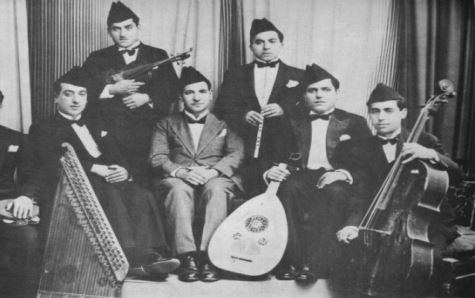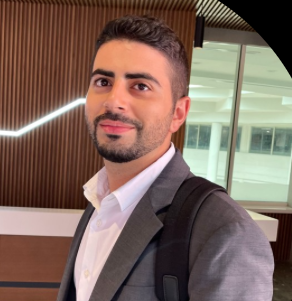
The Al-Kuwaity Brothers: Jewish Pillars of Arab Music and Culture

From Kuwait to Baghdad
Saleh (b. 1908) and Daoud (b. 1910) were born in Kuwait to a family originally from Basra, Iraq. As children, they displayed exceptional musical talents, Saleh on the violin and Daoud on the oud. Their talents quickly garnered attention from the Kuwaiti elite, but it was in Iraq where they found their true calling. In the late 1920s, the brothers relocated to Baghdad, then a vibrant cultural hub where they became key contributors to the nascent national music scene.
They helped establish Iraq’s first official radio orchestra and became the go-to composers for the country’s greatest singers. From Nazem Al-Ghazali to Salima Pasha, many of Iraq’s musical legends performed songs written by the Al-Kuwaity brothers. Their melodies were broadcast across the Middle East and became synonymous with the golden era of Iraqi music.
Innovators and Cultural Bridge Builders
The Al-Kuwaity brothers were more than just talented musicians, they were pioneers. Saleh in particular is widely credited with modernizing Iraqi maqam music, blending classical Arab forms with influences from Turkish, Persian, and Western traditions. Daoud, with his warm voice and exquisite oud playing, brought those compositions to life with emotional resonance.
Their impact was not limited to Iraq. Across the Gulf, from Kuwait to Bahrain, their songs became part of the popular repertoire. They were cultural bridge builders, Jewish artists shaping the very heart of Arab identity through music.
This phenomenon was not isolated. In pre-1948 Iraq, Jews were at the forefront of many artistic and cultural professions. By the 1930s and '40s, Jews comprised the majority of Baghdad’s professional musicians. They were court musicians, composers, and teachers, deeply embedded in the musical fabric of the Arab world.
Exile and Erasure
The rise of Arab nationalism and the Arab-Israeli conflict cast a long shadow over Jewish communities in the Middle East. In 1951, facing increasing hostility, Saleh and Daoud immigrated to Israel as part of the mass exodus of Iraqi Jews.
Tragically, in Iraq and the Gulf, their names began to vanish from public memory. Although their music continued to be played, it was often attributed to “anonymous” sources or labeled “folklore.” In Israel, they continued to compose and perform on Arabic radio programs but never regained the celebrity status they had enjoyed in Iraq.
Yet their legacy lived on. Their songs—like Walla Ajabni Jamalak, Ya Damiti, and Ala Drub Yahwy, remained popular throughout the Arab world, transcending borders, religion, and politics.
Revival and Recognition
In recent years, a new wave of appreciation has brought the Al-Kuwaity brothers back into the spotlight. In Tel Aviv, a street now bears their name. Their compositions are studied in music conservatories, reissued in digital collections, and performed by new generations of musicians.
Most notably, Daoud’s grandson, Israeli-Iraqi rock musician Dudu Tassa, has resurrected their music for modern audiences through his band Dudu Tassa and the Kuwaitis. Blending rock with traditional Iraqi melodies, Tassa has taken his grandfather’s heritage to global stages, including opening for Radiohead on a world tour.
A Shared Heritage
The story of Saleh and Daoud Al-Kuwaity is a powerful reminder of the deep connections that once existed between Jews and Arabs in the Middle East. Music was a shared language, a cultural common ground where identity, creativity, and expression thrived beyond religious or political divides.
Today, as we reflect on their enduring influence, we must also acknowledge the broader role that Jewish musicians, writers, and artists played in shaping Arab culture. Their voices, once silenced, are now returning, reminding us that cultural heritage is richer when it is inclusive, diverse, and shared.
Sources :
Jewish Music Research Centre – Salah El Kuweiti:
https://jewish-music.huji.ac.il/en/content/salah-el-kuweiti
Music Before Shabbat – The Restored Masters of Iraqi Jewish Music: The Al-Kuwaity Brothers:
World Jewish Congress – Fathers of Modern Iraqi Music:
https://www.worldjewishcongress.org/en/legacy-of-jews-in-MENA/fathers-of-modern-iraqi-music
Times of Israel – Dudu Tassa and the Kuwaitis (about the musical revival):

